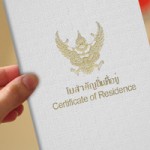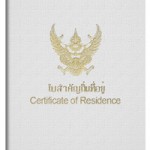Author Archive: Siam Legal International
Siam Legal is an international law firm with experienced lawyers, attorneys, and solicitors both in Thailand law and international law. This Thailand law firm offers comprehensive legal services in Thailand to both local and foreign clients for Litigation such as civil & criminal cases, labor disputes, commercial cases, divorce, adoption, extradition, fraud, and drug cases. Other legal expertise of the law firm varied in cases involving corporate law such as company registration & Thailand BOI, family law, property law, and private investigation.
Arrested in Thailand: What to do?
Thailand has a reputation for being a country where the laws are flexible. Some foreigners like to test this reputation by committing acts which they would never do in their home country. While Thailand is a wonderful place for a holiday, the country does have laws. When someone breaks those laws, they will be arrested. […]
ASEAN Economic Community and Thai Labor
The ASEAN Economic Community is coming in 2015. Within the blueprint for the AEC, there is an article called “Free Flow of Labor.” The purpose of this article is to eliminate the barriers of skilled professional workers being employed within the countries of ASEAN. Through a series of negotiations for liberalization over several years, ASEAN […]
Rights of the Accused in Thailand
At the time of the arrest, the accused has a right to be notified of the following rights. If the accused is represented by an attorney, the attorney will have the same rights as the accused (Thai Criminal Procedure Code Section 7). The accused has a right to an expeditious, continuous, and fair trial. The […]
Work Conditions Agreement and Labor Disputes
A work conditions agreement is an agreement between an employer and an employee or an employer or an employer’s association or union. An employer with 10 or more employees is required to establish a work conditions agreement at the place of employment. It must provide at least the minimum conditions as required by Thai law. […]
Thai Permanent Residency Category: Employment
Aside from marriage to a Thai national, employment in Thailand is likely to be the most common grounds for a foreigner to be granted permanent resident status. Therefore, this subject is worth addressing in some detail. As with all permanent residency applicants, a person applying on the grounds of employment must satisfy the generally applicable […]
Thai Permanent Residency Category: Investment
There are several options open to foreigners in Thailand who wish to apply for permanent residency status. The first one is based on investment, which consists of two components: presenting proof of investment both before permanent residence is granted and after it is granted. Before the permanent resident status is granted, the applicant must have […]
Thailand Permanent Residency: An Overview
Section 40 of the Immigration Act of 1979 allows foreigners who have been granted non-immigrant visas to apply for permanent residency in Thailand. Generally, the factors taken into account in granting permanent residency to a foreigner are his or her income, property, knowledge, professional skills, and family status in relationship to any Thai nationals. Furthermore, […]
Validity of Marriage Under Thai Family Law
According to Section 1495 of the Thai Civil and Commercial Code, any marriage that violates the conditions of marriage causes a marriage to be invalid. However, the Code provides that only a court judgment may determine a marriage to be invalid. Sections 1496, 1497. Therefore, an important issue that must be addressed concerns legal standing. […]
Presentation to UN Employees Retiring in Thailand
Siam Legal’s managing partner, Kert Stavorn, was invited to speak to a group of United Nations employees Tuesday regarding legal considerations for foreigners retiring in Thailand. He spoke for over one hour concentrating his presentation on the following issues: retirement visas, owning property in Thailand, fund remittance and taxes, estate planning, and investing. On the […]
The Thailand Real Estate Investment and Property Law Forum 2013
Asia Business Connect held the “Thailand Real Estate Investment and Property Law Forum 2013” conference at the Bangkok Convention Center last September 19th to September 20th. Mr. Kert Stavorn, a partner at Siam Legal International, gave a presentation regarding “Contract Strategies and Legal Concerns in Sales/Property Contracts for the Real Estate Business” and also sat […]


















